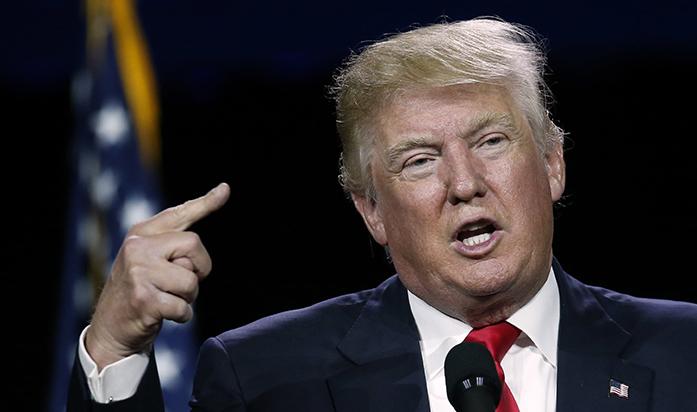By Helaina Thompson
Last month, the Democratic and Republican 2016 National Conventions addressed recent instances of gun violence — from Sandy Hook Elementary to Baton Rouge — offering strikingly different reactions.
“How was he able to purchase a gun he used to kill so many?” Felicia Sanders, a survivor of the Charleston church shooting, asked her audience on the third night of the Democratic National Convention. Democrats have called for more extensive background checks and loophole reforms that would discourage suspected terrorists, domestic abusers, and violent criminals from legally buying guns.
In his final speech at the Republican National Convention, Donald Trump painted a picture of “violence in our streets” and demanded increased “law and order.” He touted statistics about African-American children living in poverty, coupling “poverty and violence” as major problems facing the nation.
Nights before, GOP Convention speaker Sheriff David Clarke recalled recent shootings of police officers and condemned the Black Lives Matter Movement, calling it “anarchy.” And on the convention’s third night, Indiana Gov. and VP nominee Mike Pence said, “It’s African Americans who remember generations of hollow promises about safe streets and better schools” after telling his audience, “We will always stand with those who stand on the thin blue line of law enforcement.” Always?
Not so slyly, the Republican Convention managed to create an abstraction of African Americans turned militant against “law and order,” their aggression a product of growing up poor on the streets. Being black and living in poverty is a setting in which gun violence stems, convention speakers suggested.
This isn’t the first time Trump has recklessly assigned blame in order to steer the conversation away from stricter gun control.
“We have a tremendous mental health problem,” he said in January. “All they want to do is blame the guns. And it’s not the gun that pulls the trigger. We have sickos all over the place. And that’s the problem.”
It’s true, mental health and poverty must be addressed, but not as end-all-be-all solutions to gun violence. Improved access to mental-health care is necessary because 1-in-5 Americans lives with anxiety, depression, or another mental illness — which many people still feel embarrassed to admit (embarrassment that would be alleviated, in part, by removing the word “sicko” from political discourse), discouraging them from reaching out for treatment. That’s the problem.
America’s poor neighborhoods deserve national attention because all children should be entitled to proper nutrition and good schools and because no community should endure a public-health crisis such as that which occurred in Flint, Michigan. We do not need to address poverty to stop police shootings, because that attitude won’t fix poverty. We need to address poverty to stop how poverty treats its own.
Dropping gun violence on the laps of poor African Americans or people with mental illnesses leaves behind a massive wake of stigmatization. Poverty and mental health should not be dragged into the spotlight for the sake of shrugging off the need for gun regulations. The majority of those living in poverty or with a mental illness will not pick up a gun and shoot, yet shoddy politics invite Americans to fear otherwise.



